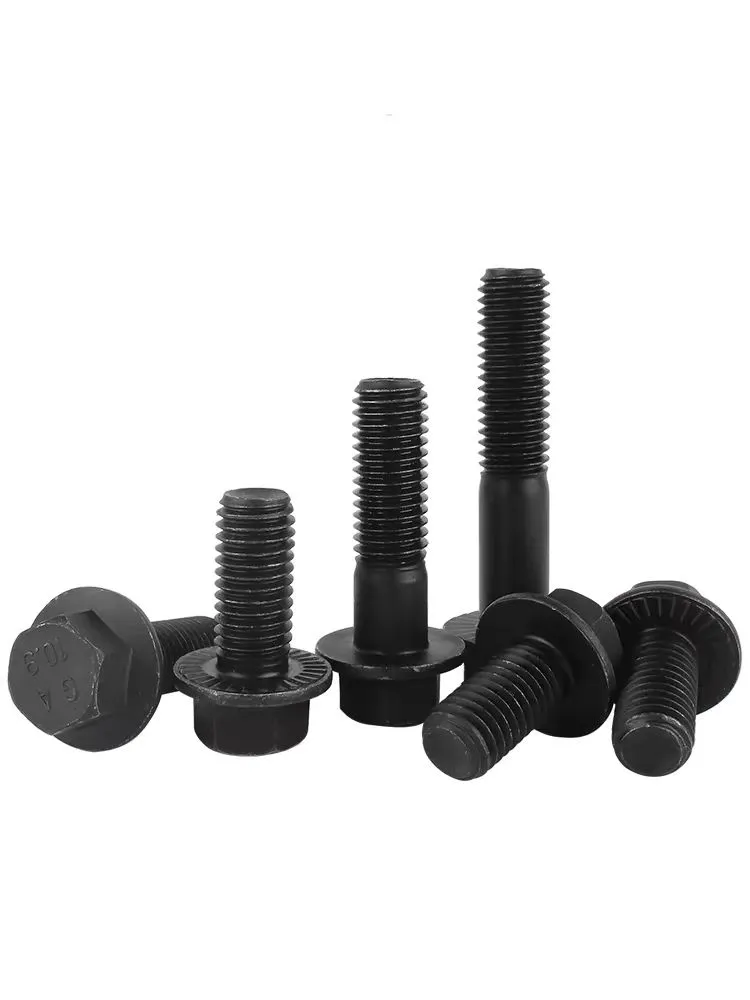

m6 stainless steel washers
Nov . 13, 2024 13:51 Back to list
m6 stainless steel washers
Understanding M6 Stainless Steel Washers Types, Benefits, and Applications
When it comes to engineering, construction, and manufacturing, small components hold significant importance. Among these, washers play a crucial role in ensuring stability and integrity in various applications. Specifically, M6 stainless steel washers have become a favored choice across multiple industries due to their unique properties and benefits. In this article, we will explore what M6 stainless steel washers are, their benefits, types, and applications.
What are M6 Stainless Steel Washers?
M6 refers to the metric size of the washer, indicating that it fits a bolt or screw with a 6mm diameter. Washers are flat, disc-shaped pieces that are typically placed under the head of a screw or bolt and on top of the surface being secured. They serve several purposes, including distributing load, reducing friction, preventing damage to surfaces, and being a barrier against corrosion. Stainless steel focuses on the material composition, which is prized for its corrosive-resistant properties, strength, and durability.
Benefits of Stainless Steel Washers
1. Corrosion Resistance One of the most significant advantages of stainless steel is its resistance to rust and corrosion. This is particularly beneficial in outdoor or marine applications where moisture exposure is common. Stainless steel washers ensure that the integrity of the connection remains intact over time.
2. Strength and Durability Stainless steel washers are known for their high tensile strength. They can withstand high levels of pressure and stress without deforming or failing. This property is essential in applications where the washers are subjected to heavy loads or dynamic forces.
3. Aesthetic Appeal Stainless steel provides a clean and attractive appearance. For applications where the visual appeal of the hardware is essential, such as in architectural or decorative designs, stainless steel washers offer an excellent option.
4. Temperature Resistance Stainless steel can hold its structural integrity over a wide temperature range. This makes M6 washers a suitable choice for applications where temperature fluctuations are expected.
m6 stainless steel washers

Types of M6 Stainless Steel Washers
1. Flat Washers The most common type, flat washers distribute the load of fasteners over a larger surface area, reducing the chances of damage to the material underneath.
2. Spring Washers These are designed to exert a force that keeps the bolt tight, ensuring that connections don’t loosen over time due to vibration or movement.
3. Lock Washers Specifically made to prevent loosening of the fastener, lock washers are crucial in applications where vibrations are prevalent.
4. Fender Washers These have a larger outer diameter, which provides a broader surface area and is particularly useful for securing thin materials or where a larger bearing surface is required.
Applications of M6 Stainless Steel Washers
M6 stainless steel washers are commonly found in various industries and applications, including
- Construction Used in bolts and screws to secure structures and components. - Automotive Essential for securing various parts in automobiles, reducing wear and tear on components. - Electronics Found in the assembly of electronic devices where connections need to be secure yet resistant to corrosion. - Marine Ideal for boats or other marine applications due to their anti-corrosive properties. - General Manufacturing Utilized in a broad range of products, from furniture to machinery, ensuring reliability and longevity.
Conclusion
M6 stainless steel washers represent a small but vital component in numerous applications across various industries. Their strength, durability, and resistance to corrosion make them an indispensable part of assembly processes. Whether you are involved in construction, automotive work, or electronics manufacturing, understanding the advantages and proper use of M6 stainless steel washers can significantly enhance the quality and reliability of your projects. As industries continue to evolve, the demand for these high-quality washers will undoubtedly grow, solidifying their place as an essential element in modern engineering.
Latest news
-
Hot Dip Galvanized Bolts-About LongZe|High Strength, Corrosion Resistance
NewsJul.30,2025
-
High-Strength Hot Dip Galvanized Bolts - Hebei Longze | Corrosion Resistance, Customization
NewsJul.30,2025
-
Hot Dip Galvanized Bolts-Hebei Longze|Corrosion Resistance&High Strength
NewsJul.30,2025
-
High-Strength Hot-Dip Galvanized Bolts-Hebei Longze|Corrosion Resistance&High Strength
NewsJul.30,2025
-
Hot Dip Galvanized Bolts-Hebei Longze|Corrosion Resistance&High Strength
NewsJul.30,2025
-
Hot Dip Galvanized Bolts - Hebei Longze | Corrosion Resistance, High Strength
NewsJul.30,2025

